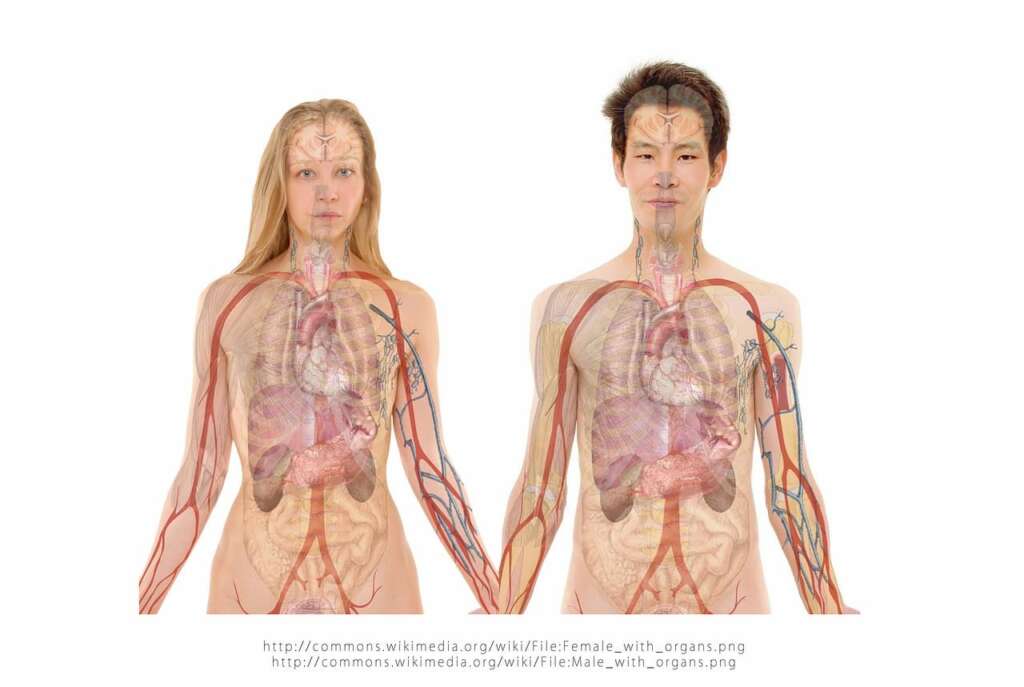The liver is a vital organ responsible for many essential functions in the human body. Among its many roles, one of the most critical is detoxification, which processes and eliminates harmful toxins and substances from the bloodstream. If you have any of the 10 signs your liver needs detoxing, you should take them seriously and consult your doctor.
Our bodies are exposed to toxins and pollutants ingested through food, the environment, consumption of alcohol, chemicals, drug abuse, and many other sources. The liver is the cleansing organ of all these toxins, so they are taken out and expelled as waste. When it is impaired or overburdened, these toxins are not fully taken out and may accumulate in the form of fat, resulting in a fatty liver condition.
Recognizing the signs that your liver may need detoxification is essential for addressing potential health concerns. In this discussion, we’ll explore ten concrete signs that may indicate it’s time to consider detoxifying your liver, home remedies, and signs that your liver health is improving.

What Are the Main Functions of The Liver?
The liver is a vital organ that performs a multitude of crucial functions in the human body, making it one of the most versatile and indispensable organs. Located in the upper right side of the abdomen, just beneath the diaphragm, the liver serves as a central processing unit for various physiological processes.
Its primary functions can be summarized as follows:
- Metabolism: The liver plays a central role in metabolizing nutrients from the food we eat. It processes carbohydrates, fats, and proteins, regulating blood sugar levels and ensuring a steady energy supply for the body’s needs.
- Detoxification: One of the liver’s most vital roles is detoxification. It filters toxins and harmful substances from the bloodstream, converting them into less harmful or water-soluble compounds that can be excreted through urine or bile.
- Bile Production: The liver produces bile, a digestive fluid that helps emulsify and break down fats in the small intestine. Bile is essential for the absorption of dietary fats and fat-soluble vitamins.
- Protein Synthesis: The liver synthesizes proteins crucial for various bodily functions, including blood clotting factors, albumin (which helps maintain blood volume), and enzymes involved in digestion.
- Storage: The liver stores important substances like glycogen (a form of stored glucose) for energy reserves and various vitamins and minerals, including iron and vitamin B12.
- Immune Function: The liver houses immune cells known as Kupffer cells, which help defend against infections and pathogens by filtering and destroying bacteria and other foreign particles in the bloodstream.
- Production of Clotting Factors: The liver produces several clotting factors essential for blood coagulation, preventing excessive bleeding from injuries.

What Is Liver Failure?
Liver failure is a severe medical condition characterized by the liver’s inability to perform its essential functions adequately. This organ, known for its remarkable regenerative capacity, can withstand a significant amount of damage. However, when liver damage surpasses its ability to repair itself, it can lead to liver failure. There are two primary types of liver failure: acute and chronic.
Acute liver failure
Acute liver failure is a rapid and severe deterioration of liver function occurring within a matter of days to weeks. It is often caused by factors like viral hepatitis, drug toxicity, or an overdose of certain medications. Acute liver failure is a medical emergency, as it can lead to life-threatening complications, including hepatic encephalopathy (brain dysfunction due to liver failure) and coagulation disorders.
Chronic liver failure
Chronic liver failure, on the other hand, develops gradually over an extended period, usually due to long-term liver damage from conditions such as chronic hepatitis, cirrhosis, or fatty liver disease. In chronic liver failure, the liver’s decline is more insidious, with symptoms often appearing in later stages. This form of liver failure can progress over several months to years, and its effects can be severe, impacting the body’s ability to metabolize nutrients, filter toxins, and perform other vital functions.
Shared symptoms
In both acute and chronic liver failure, the consequences can be grave. Symptoms may include jaundice (yellowing of the skin and eyes), ascites (fluid buildup in the abdomen), fatigue, confusion, and bleeding disorders. Without timely medical intervention, liver failure can lead to multi-organ failure and, ultimately, death.
Get personal health advice
Schedule a call with a certified health coach today!
10 Symptoms That Demand a Liver Detox
If you notice any similarities to the following symptoms you should consult your physician. While all of the information here is extracted from medical websites, we are not doctors and you need a professional opinion before arriving at any conclusions.
1. You notice an unexpected weight gain
When your liver struggles to handle fatty foods effectively, it can lead to weight gain, especially around your belly area. This weight gain can occur even if you do not regularly overindulge in large meals. Factors like excessive alcohol consumption, a diet high in sugar, or substance abuse can put a strain on your liver, making it less efficient at processing dietary fats.
It’s important to note that the critical difference between someone gaining weight from overeating and someone gaining weight due to a compromised liver is the speed at which the weight piles on. Individuals who overeat might gain weight gradually over time because their liver can still manage the excess food intake. However, if your liver is struggling, weight gain can happen relatively quickly, even with average food consumption.
2. You sweat excessively and experience body odour.
When your body accumulates an excessive amount of toxins due to an underperforming liver, it often resorts to alternative means of elimination. Usually, toxins are efficiently removed through waste, either in the form of urine or stool. However, when the liver struggles to process these toxins effectively, the body seeks alternative routes, and one such pathway is through sweating.
When you notice that you’re experiencing sticky, smelly, and a lot of sweating, it may be indicative of your body’s attempt to rid itself of accumulated fatty compounds and various toxins by excreting them through your skin. This excessive sweating suggests an increased burden of toxins in your system that your liver finds difficult to manage and eliminate through its usual processes.
3. You feel sluggish or tired all the time.
When your liver is not functioning optimally, it can significantly impact energy levels and lead to feelings of fatigue and exhaustion. This fatigue is due to the process of detoxification becoming increasingly inefficient, which can leave you feeling drained despite having seemingly sufficient amounts of rest. An under-functioning liver doesn’t just impact energy levels but can also lead to changes in mood and reduce cognitive performance.
4. Urge to vomit or nausea shortly after eating
Experiencing nausea or the urge to vomit after eating, especially when the meal is fatty or oily, can be a clear signal that something might be off with your liver’s health. The body is equipped with sensors that alert us when things aren’t right, and this is one of those unmistakable signs.
In essence, your body is trying to protect itself, including your potentially struggling liver. The nausea serves as a deterrent, discouraging you from consuming foods that could potentially worsen the situation. Fatty and oily foods, in particular, require more effort from the liver to process. When it’s already compromised, your body’s defence mechanism kicks in to prevent further strain on the liver. This can be quite uncomfortable as being unable to eat properly can be quite distressing.
5. Your skin looks dull or discoloured.
Medical professionals often advise patients to pay close attention to changes in their urine colour. This guidance stems from the understanding that alterations in urine colour, much like allergy symptoms, can signal significant underlying issues, especially concerning the liver.
At times, dark or discoloured urine may coincide with a sudden change in the person’s skin colour, particularly if they are experiencing jaundice. Jaundice typically arises when liver cells are not performing as they should, resulting in the accumulation of bilirubin, a compound produced during the liver’s processing of toxins. In simpler terms, when the liver encounters difficulties in handling toxins, it can lead to changes in both urine colour and skin tone.
6. Your poop becomes yellow or white
While discussing bodily functions like stool may not be the most pleasant topic, it is undeniably crucial for gauging overall health. Bile, a substance produced by the liver, plays a significant role in giving stool its natural brown colour. However, when the liver struggles to produce enough bile or if there’s an obstruction in its flow, your stool can take on a lighter hue, appearing yellow or even white.
If you notice this colour change in your stool once or twice, it’s probably just fine to brush it off as “something I ate or as a temporary occurrence.” But if this persists, it could signal an issue such as a bile duct obstruction or a problem with the liver itself.
7. Skin breakouts, rashes, acne
As we had mentioned earlier, your body may seek alternative ways to eliminate toxins when your liver is not functioning at its best, and one noticeable route can be through your skin, leading to issues like acne, allergies, and breakouts. Pimples and breakouts may occur as your body attempts to expel toxins through the skin. These eruptions can be painful and often release pus, making them large and discomforting.
Allergies can also become more pronounced when the liver is under stress. These allergies often present as visible skin reactions, serving as visible signals that your body is grappling with internal issues that require attention. These symptoms can be challenging to ignore due to their visual and often uncomfortable nature.
8. You crave high-sugar diet
When you constantly crave sugar, it can be a sign that your liver’s ability to regulate blood sugar levels is diminishing. Your body begins to long for a quick energy source to balance these unstable blood sugar levels. The “sugar” in this context doesn’t only refer to sweets; it also encompasses processed carbohydrates such as white bread and other easily convertible sources of energy.
Regardless of whether you’re experiencing noticeable symptoms, it’s important to recognize that excess sugar can be one of the most detrimental substances we introduce into our bodies.
While moderation is key, indulging in excessive sugary foods and sweetened beverages places a significant burden on the liver. This essential organ has to labour tirelessly to process, convert, and detoxify the excess sugar. When this pattern becomes regular, it can virtually guarantee that your liver is overworked and in need of attention.
9. Brain fog or difficulty concentrating
Toxins, however insidious they may seem, can wreak havoc on your mental health in the form of difficulty concentrating and general brain fog. This particular symptom can be attributed to the liver’s inability to efficiently process toxins. As the concentration of toxins builds up in your bloodstream, it causes a decline in cognitive performance as well as a lack of focus and clarity of thought.
10. Intolerant to strong smells
The olfactory system is highly sensitive to toxins. As such, you may experience an increased sensitivity to strong smells when the liver is struggling to keep up with its detoxification process. This symptom can present itself in a variety of ways, from being unable to tolerate certain fragrances or even sensing odours that aren’t there.
When your liver’s health is compromised, it’s unable to process toxins efficiently. As a result, the body is likely to have an amplified reaction towards various smells as the senses become more attuned to the presence of toxins.
Get personal health advice
Schedule a call with a certified health coach today!
How Can I Detox My Liver?
There are many different ways to detoxify your liver and improve its overall health. Some of these include:
- Healthy Diet: Eat a balanced diet rich in fruits, vegetables, whole grains, lean proteins, and healthy fats. This provides essential nutrients that support liver function.
- Stay Hydrated: Drinking an ample amount of water helps flush toxins from the body and keeps the liver functioning optimally.
- Exercise Regularly: Engaging in regular physical activity promotes overall health, including liver function.
- Limit Alcohol: Reduce or eliminate alcohol consumption, as excessive drinking can harm the liver.
- Moderate Medications: Use medications only as directed by a healthcare professional to prevent undue stress on the liver.
- Herbal Supplements: Consider incorporating liver-supportive herbs like milk thistle and dandelion into your routine, but consult a healthcare provider before using them.
- Reduce Sugar and Processed Carbs: Minimize the intake of sugary foods and processed carbohydrates to ease the liver’s workload.
- Limit Toxins: Reduce exposure to environmental toxins and pollutants as much as possible, as this can reduce the liver’s detoxification burden.
- Manage Stress: Chronic stress can negatively impact liver health, so practice stress-reduction techniques like meditation or yoga.
- Adequate Sleep: Ensure you get enough quality sleep, as this is when the body performs essential maintenance, including liver detoxification.
It’s important to remember that these lifestyle changes can support overall liver health but may not be a substitute for medical treatment if you have a liver condition. Always consult a healthcare professional before making significant changes to your diet or lifestyle, especially if you suspect liver issues.

Signs the Health of Your Liver is Improving
After a liver detox, you’ll definitely notice significant changes in your body. These changes might start subtly but will become quite noticeable over time. This is because a detox can greatly improve your liver’s performance, and the signs of a poorly functioning liver are typically clear.
1. Improved digestion:
If you’ve ever dealt with stomach or bowel problems, you’ll understand the immense relief that comes from having a liver that’s functioning well after detoxification. It’s practically a heavenly experience. A smoothly operating liver not only promotes regular bowel movements, which is vital for overall health, but it also pushes out toxins that can lead to digestive problems.
2. Increased energy:
Unlike individuals with a struggling liver, those who have completed a detox will find themselves feeling more energetic throughout the day. Even after engaging in some physical activity, they won’t tire out as easily. This newfound energy also leads to a more positive daily outlook. People will feel more motivated to do things, socialize more, and enjoy life to the fullest. You may even start to feel younger!
3. Enhanced mental health
Undergoing a successful liver detox has a profound impact on one’s mental state, and it brings about several positive changes. It eliminates the burden of feeling seriously unwell. As your liver regains its vitality and your body shows signs of detoxification, the relief you experience is immeasurable. The freedom from health-related worries can significantly enhance your mental well-being.
4. Stronger immunity
The liver is responsible for producing bile, which helps the body absorb vital nutrients and also works to strengthen your immune system. If it’s too busy with other tasks, your immune system might take a beating over time. However, when you detoxify your liver, its critical functions are restored, and your immunity increases significantly. You’ll find yourself catching fewer colds and viruses than before.
5. Clearer skin and complexion
If your liver is clogged with toxins, it can result in an unhealthy complexion characterized by pimples and blemishes on the face or other parts of the body. However, this condition can be improved with a detox regime. In addition to eliminating toxins from within the body, a properly functioning liver helps to get rid of the excess oil on the surface of your skin, leaving it smooth and radiant.
6. Steady weight and build
With the body’s filtration and waste disposal system working as it should, you can expect a more consistent weight and body composition. A properly functioning liver promotes a stable body weight and physical form because it prevents abrupt and extreme body transformations. You can expect improved muscle tone and weight stabilization for a healthier overall look.
Final Thoughts…
The journey toward improvement is unquestionably challenging. But with the right mindset, persistent determination, and a commitment to making healthier lifestyle choices, achieving and maintaining optimal liver health is possible.
Detoxing your liver can help you restore balance in your body so that it can perform its crucial functions at an optimum level. Following a regular detox regime and monitoring any changes in your body can also go a long way toward encouraging successful recovery and well-being in the long run.
Get personal health advice
Schedule a call with a certified health coach today!

